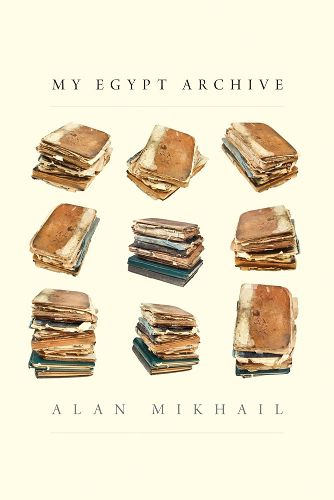Readings Newsletter
Become a Readings Member to make your shopping experience even easier.
Sign in or sign up for free!
You’re not far away from qualifying for FREE standard shipping within Australia
You’ve qualified for FREE standard shipping within Australia
The cart is loading…






A prominent historian provides an engaging on-the-ground account of the everyday authoritarianism that produced the Arab Spring in Egypt
"A visceral and perceptive study of life under autocracy."-Publishers Weekly
An unmatched contemporary history of authoritarian politics and an unflinching examination of the politics of historical authority, My Egypt Archive is at once a chronicle of Egypt in the 2000s and a historian's bildungsroman. As Alan Mikhail dutifully collected the paper scraps of the past, he witnessed how the everyday oppressions of a government institution led most Egyptians to want to remake their society in early 2011. In telling these stories of the archive, Mikhail centers the politics of access, interpersonal relationships, state power, and the emotion, anxiety, and inchoate nature of historical research.
My Egypt Archive reveals the workings of an authoritarian regime from inside its institutions in the decade leading up to the Arab Spring and, in doing so, points the way to exciting new modes of historical inquiry that give voice to the visceral realities all historians experience.
$9.00 standard shipping within Australia
FREE standard shipping within Australia for orders over $100.00
Express & International shipping calculated at checkout
A prominent historian provides an engaging on-the-ground account of the everyday authoritarianism that produced the Arab Spring in Egypt
"A visceral and perceptive study of life under autocracy."-Publishers Weekly
An unmatched contemporary history of authoritarian politics and an unflinching examination of the politics of historical authority, My Egypt Archive is at once a chronicle of Egypt in the 2000s and a historian's bildungsroman. As Alan Mikhail dutifully collected the paper scraps of the past, he witnessed how the everyday oppressions of a government institution led most Egyptians to want to remake their society in early 2011. In telling these stories of the archive, Mikhail centers the politics of access, interpersonal relationships, state power, and the emotion, anxiety, and inchoate nature of historical research.
My Egypt Archive reveals the workings of an authoritarian regime from inside its institutions in the decade leading up to the Arab Spring and, in doing so, points the way to exciting new modes of historical inquiry that give voice to the visceral realities all historians experience.